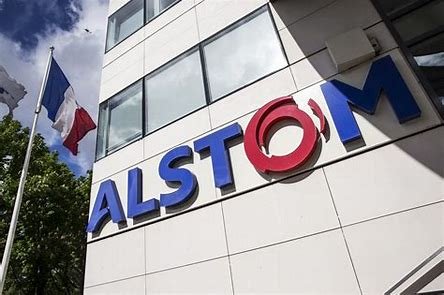- With an order backlog of €4.1B (end of March 2021) from its India operations, Alstom expects further growth in orders by 2025.
- Over 106,700 direct, indirect & induced jobs supported in India; aims to increase women employees to 28% by 2025.
- 10x lesser CO2 emissions from Alstom’s mobility solutions compared to other modes of passenger and freight movement
Alstom, a global leader in sustainable and green mobility solutions, has released its first India Impact Report in partnership with Ernst & Young. The report captures the socio-economic contributions and ESG goals by Alstom in India until end of March 2021. Commenting on the release, Alain SPOHR, Managing Director – Alstom India said, “India has always been a pivotal market for Alstom, and we continue to deepen this partnership by customizing mobility solutions for the country. We are delighted to share the impact/contribution of our presence in India via this report, especially in the areas of job creation, sustainability, and to the larger community. All this is reflective of the hard work and dedication of our people, and all our stakeholders in this extraordinary journey. We are committed to provide our unflinching support as an enabler in India’s growth story and help fulfil the government’s key ambitions of ‘Make in India’ and ‘Atmanirbhar Bharat’.
Cecile TEXIER, VP Sustainability & CSR, Alstom said, “For almost 30 years, Alstom has partnered with India in the modernisation and development of its transportation revolution, making it safer and more sustainable. And going forward, we aspire to positively influence the Indian market with our products and operations’.
Highlights on economic contribution
High localization & building a supply chain ecosystem
Alstom India buys €331 million worth of goods and services, among which 75% is made with Indian suppliers. Overall, the company has invested €142M (INR 12,556 M) locally in the last 5 years. In addition, the firm has conducted 21 technology transfers across Alstom locations, to suppliers and other partners.
Job creation and focus on Diversity & Inclusion
As of March 2021, Alstom had 7,634 direct employees in India. Additionally, the company has supported 71,340 indirect & 27,770 induced jobs across the country. The company is committed to improving its diversity ratio and plans to include 28% women in management, engineering & professional roles by 2025, while retaining its position as a Top Employer.
Remarkable reduction in CO2 emissions and proven focus on sustainability
10X lesser CO2 emissions from Alstom built freight and metro trains vs other modes of transport.
In comparison to the high CO2 emissions from cars (79.5 gCO2/passenger.km), Alstom’s metro trains in India emit only 7.9 gCO2/passenger.kms. Similarly, the electric locomotives (e-Locos) deployed for high-speed freight transportation in India, emit 13.4 gCO2/ton.km of CO2, while goods trucks account for 92.3 gCO2/ton.kms.
Sustainable products and services
Alstom’s eco-design approach focuses on continuously improving the sustainability of its solutions by tracking and minimising their environmental impact throughout their life cycles. For example, the mass of materials and components used in manufacturing rolling stock for Mumbai Metro Line 3 are 96% recyclable and 99% recoverable.
Decreasing the environmental impact of installations
Alstom is committed to limiting the environmental impact of its operations in India and worldwide. As a part of its Green Energy Strategy, Alstom is also investing in linking renewable energy production systems to its locations, such as at the Sri City facility, where 1 MW of solar energy generation capacity has been built.
The project will result in an annual reduction of 1,132 tonnes of CO2 emissions and reducing non-renewable energy consumption by 30% (by the end of 2021).
Outlook for Alstom India
Alstom will continue strengthening its contribution to socio-economic impact and ESG (Environmental, Social and Governance) goals.
By 2025, Alstom aims to reach 85% localisation on all domestic projects and increase digitalization of processes by 20%.
The company will accelerate its move to maximum usage of Green/ Renewal Energy in Industrial operations and 100% of newly developed solutions will be eco-designed.
Corporate Social Responsibility
Through its CSR initiatives, the company plans to reach 100,000 direct beneficiaries.
The expanded Alstom in Motion (AiM) 2025 strategic plan will focus on leveraging the group’s reinforced product lines and geographical presence, commit to accelerate smart and green mobility innovation with important R&D investments, and will extend its operational excellence efforts to a new scale.







